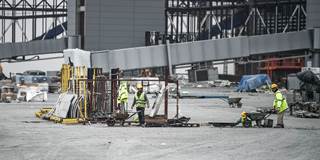The PPP Concerto
There are good reasons why privately financed infrastructure projects become significantly more expensive – and slower to complete – than planners anticipate. One solution is to bring in private financing only after a project is completed.

CAMBRIDGE – As an old tale has it, there once was a competition between two pianists. After listening to the first pianist, the jury awarded the prize to the second. There was no need to listen further, because who could possibly be worse?